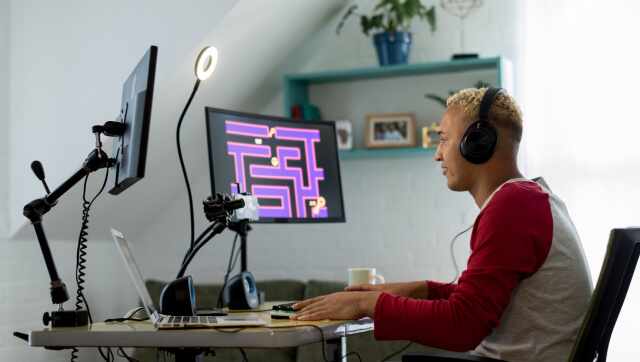Donna Russell, PhD, never set out to become an expert on computer games. A former elementary school teacher who worked with kids from urban neighborhoods, Russell went into education to help people learn. Knowledge gave people the power to navigate their lives and careers effectively, she believed. A solid education was key to that.
But Russell, a faculty member in the Department of Psychology in Capella University’s Harold Abel School of Social and Behavioral Science, found that it was hard to connect with every child in a traditional classroom. For starters, there was only one teacher for the entire class. What’s more, her students’ learning styles and pace often varied wildly. How, she wondered, could she optimize the learning of each individual?
Simulations for learning
The answer Russell ultimately hit upon—and that she shares with Capella students in educational psychology graduate and undergraduate courses—was computer gaming. Educational researchers have long known that we learn best by doing. Reading a book on baking and actually making a cake are two different things, for example, and a person attempting the latter is likely to absorb lessons from the experience most deeply.
Russell wanted to find ways to give her students immersive experiences in subjects like geology and environmental science. Short of building a time machine, for example, how could she get her students to understand what the world looked like in the Paleozoic period? The best way to do so seemed to be through simulations. Russell became an expert on immersive virtual learning environments—in other words, computer games.
“Technology is just a gateway—an effective one in this case—to learning,” she says. “When I see a technology that will augment that learning project, that’s what I get excited about.”
In 2006, Russell hired a couple of programmers to create an educational program called Geo World, which students could access through Second Life, a 3D universe used by digital gamers. Following traditional classroom instruction, students would log on to Geo World, where they would use avatars to explore and navigate an ancient landscape. As they completed tests and moved toward educational goals, students’ actions and movements were logged. Teachers could use that data to chart the progress of each student. “You can see their processes. You can track their learning,” Russell says. “And you can approach them individually afterward to help them with concepts that proved difficult.”
An educator and developer
Her success with immersive virtual learning environments—and the success of her students—eventually spurred Russell to develop other games and to study the elements that made digital educational games most effective. She is lead editor on two books about gaming trends in K-12 education and manages a consulting company that advises educational institutions on the development and use of Virtual Immersive Technologies for Learning. As Microsoft’s HoloLens and other 3D technologies come online, Russell predicts the growth of educational gaming will surge.
Russell believes her Capella students—whether they are educational researchers or teachers—will increasingly see virtual immersive learning as key to success in the classroom. The best teachers in tomorrow’s schools will be familiar with the importance of games, and Russell’s own students at Capella will be well prepared. “Decision making is central to the learning process, so the application of gaming makes sense,” she says. “We learn by doing, and, when we make choices in a game, we learn what works and what doesn’t work.”
Learn more about Capella’s online psychology programs, including MS in Educational Psychology and PhD in Educational Psychology programs.
You may also like
The difference between school counselors and school psychologists
October 21, 2019




